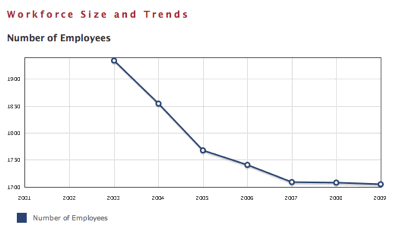Deficit Limits, Budgets and Their Likely Impact on Wireless Innovation at FCC

In the 1970’s FCC went twice to the National Academies to ask for policy research studies on major technical controversies that were delaying industry growth. These two studies then became the frameworks of Part 25 Fixed Service/domsat sharing in C band and the Part 68 interconnection rules that opened the floodgates for CPE - units connected to the telephone line.
However, the early Reagan cutback eliminated funding for such studies and slashed technical staffing at FCC. The 8th Floor grew increasingly interested in universal service issues, broadcast ownership and content, and, more recently, in broadband issues. These are all important issues, but so are the technical issue of spectrum policy particularly as they relate to wireless innovation. While is is tempting to see broadband on in terms of repurposing spectrum to me some goal, the needed capacity is a function of spectrum, technology, and infrastructure investment - as was made clear in a recent Ofcom report.
New technology does not emerge spontaneously. Wireless technology is subject to unusual regulatory issues and the complex nature of this and resulting uncertainties is a real discouragement to wireless innovation - something acknowledged by FCC in the Wireless Innovation NOI.
The present spectrum “haves” may well prefer less FCC action in encouraging and considering new wireless technology and thus may be cheering secretly for pending cutbacks in technical policy resources at FCC. But the national interest is not always the interest of the major corporations roaming the halls of the 8th Floor. We all recall when Microsoft, Google, Apple, and RIM where small firms getting little attention among the established firms such as Motorola, RCA, GE, IBM, etc.
The excess time delays associated with many recent decisions in wireless policy, either big decisions like the AWS-3 nondecision after 4 years of deliberations and the similar delays in delays and nondecisions in much less controversial matters ably described by Mitch Lazarus in comments to the Commission, both delay new technology and discourage investment in it vis-a-vis other fields with more transparent regulation.
The 1980s shrinkage in FCC resources was repeated again in the last half of the last decade:
 \
\
FCC staffing 2003-1009 (http://bestplacestowork.org/BPTW/rankings/detail/FC00)
Sadly, it is virtually inevitable that the current budget/debt limit mess will lead to the same resource devastation. Much of the FCC constituency, like much of the EPA and SEC “constituencies”, would prefer that their regulatory agencies be cut to allow the “market” to be more effective. Indeed, Indiana Gov. Mitch Daniels calls EPA the “employment prevention agency”. Perhaps it is, but in many of its decisions FCC is the employment creation agency! A one size fits all slashing of agency budgets will adversely affect wireless innovation even if it spares the narrow issue of finding more spectrum for broadband.
NAB and MSTV might view a freeze of all present FCC regulations as being in their interest. CTIA and CEA might want a singleminded focus on more spectrum for broadband and ignoring all other spectrum issues. Indeed, by focusing exclusively on “clearing spectrum” for broadband the impact of broadband on other incumbents will be worse since new technology for either broadband applications or other incumbents, e.g. broadcaster, will be put on hold unless they are lucky enough to be already allowed under today’s anachronistic rules. Capital formation for innovative wireless technology will dry up nearly completely since there will be unpredictable delays in getting FCC action on necessary rule changes/interpretations. Under such circumstances FCC could truly become the “employment prevention agency” agency and wireless innovation would be reduced to making overseas standard making organizations like ETSI the gatekeeper to US spectrum - US startups need not apply without huge capital resources and foreign partners.
If FCC can not get a reprieve from the pending budget ax, let me point out a less desirable alternative that has not been discussed: Making new technology deliberations user fee supported. Note that this is already allowed at FDA for new drug and new device applications, at USPTO for speeding patent applications, and at USNRC for speeding reviews of new reactor technology.
FCC could ask for authority to collect fees for dealing with new technologies that raise interference questions and then use those fees to speed up deliberations by using outside resources to supplement its staff or hire more staff. In exchange for this income, FCC would have to pledge timeliness improvement from its present poor performance in new wireless technology deliberations. This might be done by asking that Section 7 be amended to make it realistic, not an unobtainable goal as at present. While this would make wireless innovation more costly by internalizing the cost of FCC deliberations into a business plan, it may well be more attractive to wireless R&D investor than the present chaos.
But FCC deliberation on innovative wireless technology consistently violate Section 7 under current funding and the expected funding contraction will only make it much worse. Innovators do not expect regulator certainty, but do expect and deserve transparency and timely resolution.



![Validate my RSS feed [Valid RSS]](valid-rss-rogers.png)

